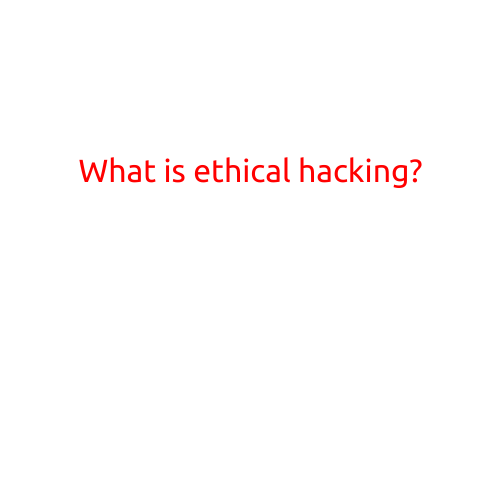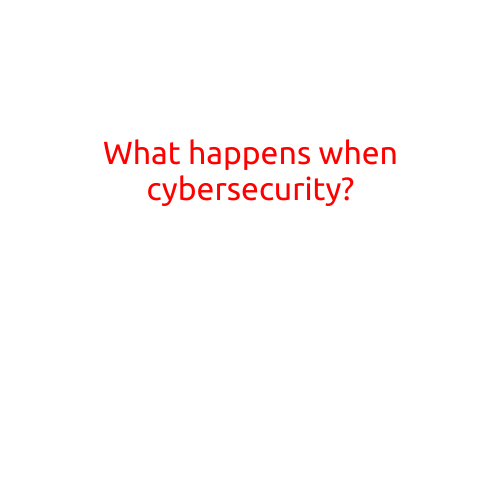
What is Ethical Hacking?
In today’s digital world, security is a top concern for individuals, businesses, and governments alike. With the increasing reliance on technology, the threat of cyber attacks and data breaches has become a major concern. This is where ethical hacking comes in - a profession that uses its expertise to identify and exploit vulnerabilities in computer systems, with the goal of improving their security.
What is Ethical Hacking?
Ethical hacking, also known as penetration testing or white-hat hacking, is the practice of testing computer systems and networks to identify vulnerabilities, weak points, and potential entry points for an attacker to exploit. The goal of ethical hacking is to mimic the actions of an attacker, identifying vulnerabilities and weaknesses in the system, but with the consent and approval of the system’s owner. This allows the system owner to take steps to fix the vulnerabilities and improve their overall security.
What is the difference between Ethical Hacking and Malicious Hacking?
The key difference between ethical hacking and malicious hacking lies in the intent and motivation of the hacker. Malicious hacking, also known as black-hat hacking, is the unauthorized access to a computer system or network with the intention of causing harm, damage, or financial gain. Ethical hacking, on the other hand, is done with the explicit permission of the system owner, with the goal of improving their security and identifying vulnerabilities.
Why is Ethical Hacking important?
Ethical hacking is an essential part of cybersecurity. In today’s digital age, computer systems and networks are vulnerable to attacks and breaches. Ethical hackers use their expertise to identify these vulnerabilities and weaknesses, providing a proactive approach to security. By identifying and reporting vulnerabilities, ethical hackers help system owners to:
- Improve Security: Ethical hacking helps identify vulnerabilities and weak points in a system, allowing system owners to take steps to fix them.
- Protect Data: By identifying vulnerabilities, ethical hackers help prevent data breaches and unauthorized access to sensitive information.
- Enhance Compliance: Ethical hacking helps system owners comply with regulatory requirements and industry standards for security and vulnerability management.
- Reduce Risk: By identifying and addressing vulnerabilities, ethical hackers help reduce the risk of security breaches and vulnerabilities.
How do Ethical Hackers Work?
Ethical hackers use a range of techniques and tools to identify vulnerabilities and weaknesses in computer systems and networks. These include:
- Network Scanning: Ethical hackers use specialized tools to scan networks and identify open ports, vulnerabilities, and potential entry points.
- Social Engineering: Ethical hackers use psychological manipulation to trick employees into revealing sensitive information or performing certain actions.
- Vulnerability Identification: Ethical hackers identify and exploit known vulnerabilities in software, hardware, and network configurations.
- Penetration Testing: Ethical hackers simulate a real-world attack on a system, attempting to gain unauthorized access or exfiltrate data.
Conclusion
Ethical hacking is a crucial part of cybersecurity, providing a proactive approach to identifying and addressing vulnerabilities in computer systems and networks. By understanding the basics of ethical hacking, individuals and organizations can better appreciate the importance of these professionals in keeping their systems and data secure. If you’re considering a career in ethical hacking, this is a field that offers a range of exciting and challenging opportunities to make a real difference in the fight against cyber threats.





